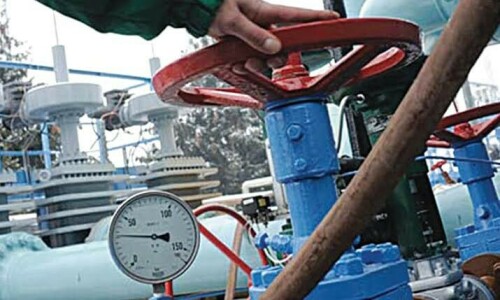DHAKA: As general elections approach this week in Bangladesh, opposition leader Abdul Moyeen Khan says he had to hide out in the homes of a string of acquaintances until nominations closed, trying to escape a government crackdown.
The former minister and his Bangladesh Nationalist Party (BNP) are not running in the Jan 7 vote, in which Prime Minister Sheikh Hasina is chasing a fourth straight term, despite a bleak economy that needed an IMF bailout last year.
“We’re not even in the election, but they are still not sparing us,” the grey-haired Khan, 77, said in Dhaka, the capital, on his return home in December after nominations closed and removed any risk that he could pose an electoral threat.

His party boycotted the vote after Hasina refused to cede power to a caretaker government to run the poll. Now it says 10 million party workers are on the run after the arrests of nearly 25,000 following deadly anti-government protests on Oct 28.
“Police and other government agents were hunting for our leaders, particularly in their homes,” said Khan. “The situation instilled fear in our minds.”
Conditions were worse than at the time of the last election in 2018, when attacks on party workers kept him from holding even a single rally, he added.
Hasina and her Awami League have repeatedly condemned the BNP as troublemakers out to sabotage the elections, rebuffing warnings by rights groups Amnesty International and Human Rights Watch (HRW) that the crackdown aimed to subdue the opposition.
The BNP contested the last election but kept out of the fray in 2014. And New York-based HRW has said Bangladeshis will again be denied the right to freely choose their leaders.
In a November report, the rights group put the number of arrests of BNP activists at 10,000, with two police officers among at least 16 dead and about 5,500 injured in the violence.
“The jails are overcrowded, with statistics showing the number of inmates is double capacity,” said Khan, who wore a mask, cap and sunglasses to obscure his identity as the pace of arrests picked up.
Police ransacked the homes of BNP leaders and workers in frequent nighttime raids, he said, even detaining family members of those who evaded them. Some hid out in forests, paddy fields and cemeteries to escape, two other party leaders said.
However, police say they arrested only those involved in the violence, with one senior officer rejecting the opposition estimates as incorrect.
“Police are arresting only those involved in killings and attacks, vandalism and arson,” said the officer, who sought anonymity as he was not authorised to speak to the media.
The crackdown comes at a time when the opposition leadership finds itself in disarray, as ailing party president Khaleda Zia, herself a former prime minister famed for a bitter, decades-long rivalry with Hasina, keeps out of active politics.
Although her son has temporarily taken the mantle, he is in exile, and the party’s next most senior leader, Mirza Fakhrul Islam Alamgir, has been in jail since Oct 29.
Published in Dawn, January 3rd, 2024














































Dear visitor, the comments section is undergoing an overhaul and will return soon.